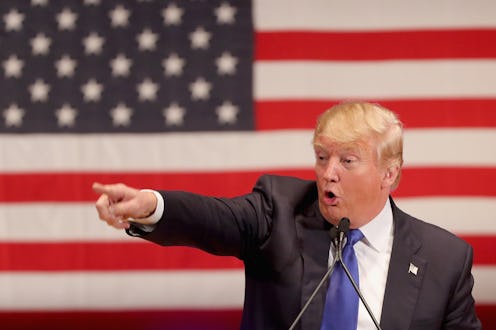News
Why You Should Pay Attention To The Iowa Caucuses
The 2016 presidential candidates have spent the better part of a year tearing each other apart, and on Monday, they'll finally get a chance to glimpse the fruits of their labor when Iowa voters cast the first votes of the election. It's looking like a nail-biter, with Ted Cruz and Donald Trump running neck and neck in the state, and given Iowa's history, it's entirely possible that a dark horse candidate could surge in the 11th hour and pull off an upset. In addition to that tantalizing possibility, there's one more big reason you should pay attention to the Iowa caucuses.
Of course, there are a lot of reasons to hate the Iowa caucuses. For one, it's not really fair that one state gets to vote before all of the others and, as a result, gets special and early attention from the candidates. Iowa's perceived importance forces candidates to pander to the state's residents in weird ways, like by supporting ethanol subsidies, and gives the state's elected officials an artificially inflated role in the presidential selection process. And then there's the fact that Iowa, contrary to popular belief, isn't all that influential in determining who wins the parties' nominations. In fact, only one Republican in U.S. history has won the Iowa caucuses and been elected to the presidency in the same cycle.
And yet there's one big reason why, in this specific presidential race, you should pay attention to the Iowa caucuses. That reason is Donald Trump. As many observers have noted, Trump's astronomic success in the 2016 campaign came as a surprise to just about everybody, with the possible exception of Trump himself. But is that really true? In what sense has Trump been successful in this race? So far, Trump has dominated his rivals in only two ways: media coverage and opinion polling.
But media coverage and opinion polling don't nominate candidates. Voters do. Trump has demonstrated remarkable political skill during his presidential run, and his dominance in the polls is staggering, but the fact remains that he has not yet participated in a single election. At the end of the day, that's the only thing that matters, and Trump is 100 percent untested in this regard. In fact, there's some reason to believe that his apparent success as a candidate is an illusion: His ground game in Iowa is reportedly very weak, and ground game really, really matters in presidential races.
The Iowa caucuses will be the first time the Trump campaign is truly put to the test. When the votes are tallied and announced, we will finally know, for the first time, whether Donald Trump is a paper tiger or the real deal. Because Trump has consistently defied political gravity since the beginning of his campaign, his success or failure in Iowa will reveal quite a bit — not just about his candidacy, but about the American electoral process itself. If The Donald wins, you will know for certain that the popular conception of what makes a candidate "presidential" is completely off-base. If he loses, you'll know that the old rules do, at least for the time being, still apply.
Don't get me wrong: In a normal election and in normal circumstances, the Iowa caucuses really don't matter very much. But we are not in normal circumstances, and this is far from a normal election.
